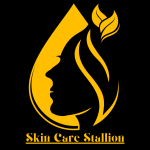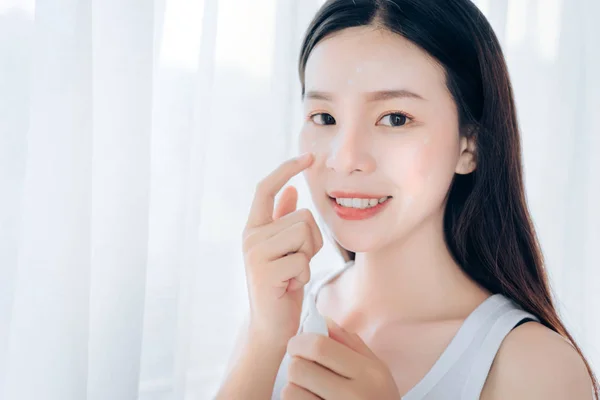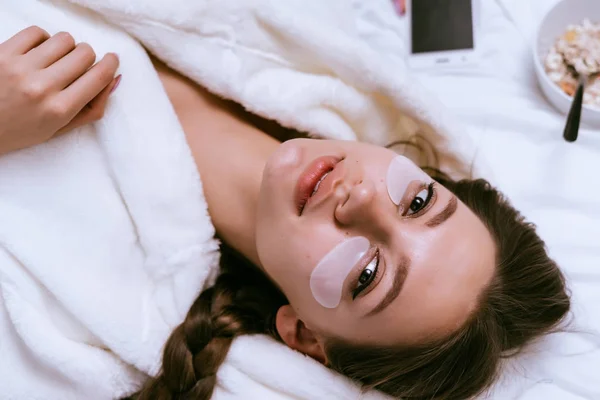
Skincare Routine During Diet Period
Skincare Routine During Diet Period
During a diet period, your skincare routine needs extra attention. Changes in diet can affect your skin’s appearance, hydration, and overall health. Adjust your routine by focusing on hydration, nourishment, and protection.
Incorporate gentle products, and consider how nutrient intake impacts your skin. Following a diet-friendly skincare regimen helps maintain a radiant complexion while dieting.
Effects of Diet on Skin Health
When starting a diet, your skin may react to the reduction of certain nutrients or the introduction of new ones. Diets that limit fat, sugar, or specific vitamins can lead to dryness, breakouts, or dullness. Additionally, rapid weight loss can cause the skin to lose elasticity.
Incorporating foods rich in vitamins like A, C, and E is essential for maintaining a glowing complexion. If your diet is restrictive, consider supplements to support your skin’s health.
It’s also crucial to stay hydrated, as dehydration can make the skin look tired and dull. Drinking plenty of water helps flush toxins, keeping your skin clear and fresh.
Adapting Your Skincare Routine
Adjusting your skincare routine to align with your diet can prevent negative skin reactions. Focus on using gentle cleansers that do not strip the skin of its natural oils.
During a diet, your skin might become more sensitive, so avoid harsh exfoliants and strong acids. Instead, opt for soothing ingredients like aloe vera or chamomile to calm the skin.
Additionally, ensure that you’re using a good moisturizer, preferably one with hyaluronic acid or glycerin, which helps lock in moisture and keeps the skin hydrated. A hydrating serum can also be a beneficial addition during this time.
Nourishing the Skin from Within
Your skin reflects what you eat. Incorporating nutrient-dense foods into your diet can improve your skin’s texture and appearance. Omega-3 fatty acids found in fish and flaxseeds help maintain the skin barrier and reduce inflammation.
Antioxidants, like those in berries, green tea, and leafy greens, combat free radicals and promote a healthy glow. Adding collagen supplements or bone broth can help improve skin elasticity, especially when dieting. Consider consulting a dermatologist or nutritionist to ensure your diet supports your skin goals.
Protecting Skin During Weight Loss
During weight loss, it’s essential to protect your skin from potential sagging and stretch marks. Keeping your skin moisturized with products containing shea butter or vitamin E can help maintain its elasticity.
Sunscreen is another vital step in your skincare routine, as it prevents damage from UV rays, which can be more harmful to your skin when it’s in a delicate state during a diet. Regular massages and using firming lotions can also help stimulate blood flow and keep your skin supple as your body changes.
Understanding Skin Changes During Dieting
Common Skin Concerns During Dieting
Dehydration and Dry Skin
Reduced water intake during dieting can lead to dehydration, causing your skin to lose moisture. This can result in dry, flaky, and rough skin. When you don’t drink enough water, your skin loses its natural glow, appearing dull and lifeless.
Breakouts and Acne
Dieting can trigger breakouts due to hormonal changes, detoxification, and increased consumption of certain foods like dairy or high-glycemic carbs. Hormones like cortisol and insulin can fluctuate, leading to excess oil production and clogged pores, which cause acne.
Dull and Tired-Looking Skin
Nutrient deficiencies are common when dieting, especially if the diet is restrictive. Lack of essential vitamins, such as vitamin C, and minerals like zinc, can make the skin look dull and tired. A balanced diet rich in fruits, vegetables, and whole grains is crucial to maintaining a healthy complexion.
Sensitivity and Irritation
Sudden changes in diet can make your skin more sensitive. New foods or a lack of certain nutrients can cause irritation, redness, and a burning sensation. It’s essential to introduce dietary changes gradually to avoid shocking your system.
Role of Nutrients in Skin Health
Vitamins and Minerals
Vitamins A, C, E, and B complex are vital for skin health. Vitamin A promotes cell turnover, vitamin C boosts collagen production, and vitamin E acts as a powerful antioxidant. Minerals like zinc and selenium play key roles in maintaining skin integrity and preventing oxidative damage.
Hydration
Water is essential for maintaining skin elasticity and glow. Proper hydration helps your skin stay supple, reducing the appearance of fine lines and wrinkles. Drinking enough water daily is crucial for a healthy, radiant complexion.
Antioxidants
Antioxidants combat oxidative stress, protecting your skin from free radical damage. Foods rich in antioxidants, such as berries, nuts, and green tea, help keep your skin looking youthful and vibrant during dieting.
Hormonal Impact on Skin
Dieting can affect hormone levels, which directly impacts your skin. Hormones like insulin, cortisol, and androgens can fluctuate during calorie restriction or changes in macronutrient intake.
These hormonal shifts can lead to increased oil production, breakouts, and changes in skin texture. Maintaining a balanced diet helps regulate these hormones and supports overall skin health.
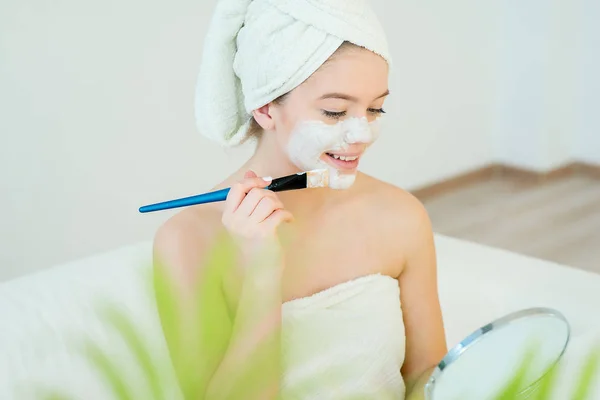
Skincare Routine During Diet
Morning Routine
Cleansing
Start your day with a gentle cleanser. This essential step removes overnight impurities like excess oil and dead skin cells, setting the stage for healthy skin. Opt for hydrating cleansers that don’t strip your skin’s natural moisture barrier. Look for products labeled as non-stripping to keep your skin soft and supple.
Toning
After cleansing, apply an alcohol-free toner to balance your skin’s pH. This step is crucial for preparing your skin to absorb subsequent products. Choose toners with hydrating ingredients like hyaluronic acid and soothing agents such as rose water. These ingredients help maintain moisture and calm your skin, preventing irritation.
Moisturizing
Even when dieting, it’s vital to keep your skin hydrated. Use a lightweight moisturizer that provides ample hydration without clogging pores. Don’t forget SPF protection—dieting indoors doesn’t eliminate the risk of UV damage. Choose a moisturizer with built-in SPF to save time and ensure consistent protection.
Sun Protection
Broad-spectrum sunscreen is your skin’s best defense against UV rays. Apply it daily to prevent premature aging and sun damage, even on cloudy days. Opt for an SPF of at least 30. Decide between physical sunscreens, which reflect UV rays, and chemical sunscreens, which absorb them.
Evening Routine
Double Cleansing
End your day with a double cleanse. Start with an oil-based cleanser to dissolve makeup and excess oil. Follow with a water-based cleanser to remove remaining impurities. This two-step process ensures your skin is thoroughly cleansed and ready for the next steps.
Exfoliation
Exfoliate your skin regularly, but don’t overdo it. During dieting, your skin might be more sensitive, so adjust your exfoliation frequency. Choose between chemical exfoliants like AHAs or BHAs for a gentle, deep clean, or opt for physical exfoliants for a more immediate effect. Regular exfoliation reveals smoother, brighter skin.
Serum Application
Serums are potent treatments that target specific skin concerns. Use a hydrating serum with ingredients like hyaluronic acid for moisture, or try a serum with retinol, vitamin C, or niacinamide to address issues like acne, dark spots, or dullness. Apply them after cleansing and before moisturizing for best results.
Night Cream or Sleeping Mask
Your skin repairs itself while you sleep, so give it a boost with a rich night cream or sleeping mask. These products provide intense hydration and lock in moisture, leaving your skin soft and rejuvenated by morning. Choose a formula that addresses your specific skin needs, such as anti-aging or brightening.
Weekly Treatments
Face Masks
Treat your skin to a weekly face mask. Whether you choose a clay mask to detoxify, a sheet mask for hydration, or a hydrating mask to plump the skin, masks provide a concentrated dose of skincare benefits. Select a mask based on your current skin concerns for the best results.
Deep Cleansing
Incorporate deep cleansing into your routine once a week. This step helps prevent buildup of dirt and oil, which can lead to breakouts. Methods like steaming your face or using pore strips are effective at keeping your pores clear and your skin smooth.
DIY Treatments
Get creative with safe DIY skincare treatments using kitchen ingredients. Honey, oatmeal, and yogurt are popular choices for homemade masks. These ingredients are known for their soothing, hydrating, and exfoliating properties. However, always patch-test to avoid irritation, and be cautious with active ingredients.
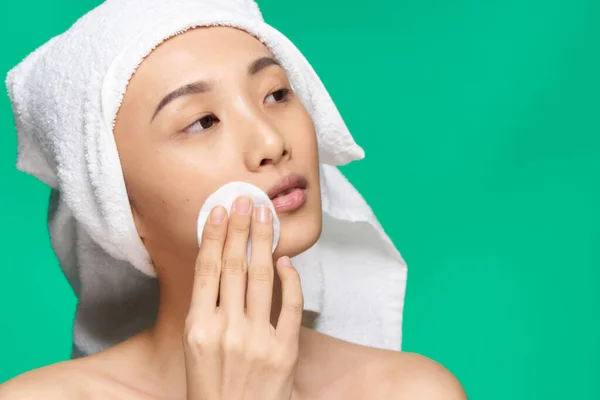
Diet and Skincare Synergy
Foods That Promote Healthy Skin
Hydrating Foods
Consuming hydrating foods like cucumbers and watermelon helps maintain skin moisture. These foods are high in water content, which keeps your skin plump and hydrated, reducing the appearance of fine lines.
Antioxidant-Rich Foods
Berries, nuts, and dark leafy greens are rich in antioxidants. These powerful compounds fight free radicals, protecting your skin from premature aging and oxidative stress.
Omega-3 Fatty Acids
Fatty fish, flaxseeds, and walnuts are excellent sources of omega-3 fatty acids. These nutrients enhance skin elasticity, reduce inflammation, and keep your skin hydrated.
Collagen-Boosting Foods
Bone broth, citrus fruits, and eggs play a vital role in collagen production. Collagen is essential for skin firmness and elasticity, helping to reduce wrinkles and sagging.
Gut Health and Skin Connection
A healthy gut is key to clear skin. Probiotic-rich foods like yogurt, kefir, and sauerkraut support gut health, which directly impacts skin clarity and reduces acne.
Foods to Avoid for Better Skin
High-Glycemic Foods
Sugar and refined carbs can spike blood sugar levels, leading to acne and breakouts. Limiting high-glycemic foods like white bread and sweets can help keep your skin clear.
Dairy and Skin Sensitivity
Some individuals experience acne due to dairy consumption. Reducing or eliminating dairy may improve skin texture and reduce blemishes.
Processed Foods
Processed foods are loaded with preservatives, artificial flavors, and additives that can harm your skin. Avoiding these can lead to healthier, more vibrant skin.
Alcohol and Caffeine
Alcohol and excessive caffeine can dehydrate your skin. Reducing intake of these can help maintain your skin’s moisture and elasticity.
Supplements for Skin Health
Multivitamins
A balanced multivitamin helps fill nutrient gaps that are crucial for skin health. It supports overall skin vitality and resilience.
Fish Oil or Omega-3 Supplements
Omega-3 supplements, like fish oil, enhance skin hydration and elasticity. They combat dryness and support a smooth complexion.
Probiotic
Probiotic supplements promote gut health, which is closely linked to clear skin. A balanced gut flora helps reduce skin issues like acne and redness.
Collagen Supplements
Collagen peptides can improve skin firmness and reduce wrinkles. These supplements support your skin’s structure and youthful appearance.
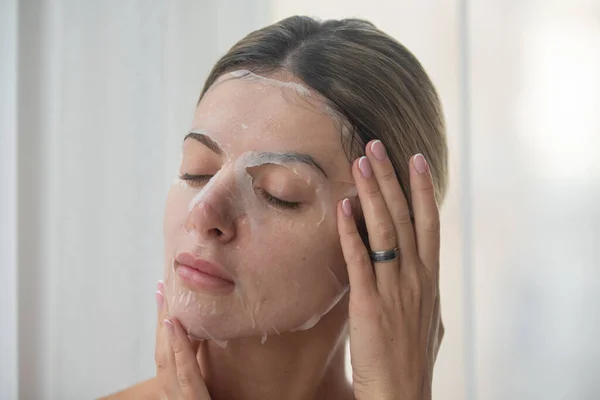
FAQs
How can my diet affect my skin during a weight loss program?
Diet plays a significant role in skin health. Nutrient-rich foods can enhance your complexion, while a lack of essential vitamins and minerals might lead to dryness, acne, or dull skin.
Rapid weight loss can sometimes cause sagging or loose skin, so it’s important to focus on a balanced diet that supports both your overall health and skin integrity.
What should I include in my skincare routine while dieting?
During a diet, your skincare routine should include gentle cleansing, hydration, and sun protection. Use a mild cleanser to avoid stripping your skin of natural oils, and apply a rich moisturizer to combat any dryness.
Don’t forget sunscreen, as your skin may be more sensitive to sun exposure, especially if you’re consuming fewer antioxidants that protect against UV damage.
Can changes in my diet cause skin breakouts?
Yes, dietary changes can trigger skin breakouts. Sudden shifts in your diet can lead to hormonal imbalances or increased oil production, causing acne. High-glycemic foods or those high in dairy might also contribute to breakouts.
It’s beneficial to monitor your skin’s reaction to different foods and maintain a skincare routine that helps manage oil production and keeps pores clear.
How can I prevent skin sagging during weight loss?
To minimize skin sagging during weight loss, aim for gradual weight loss rather than rapid shedding of pounds. Incorporate strength training exercises to build muscle, which can help tighten the skin.
Additionally, moisturizing your skin with products containing collagen-boosting ingredients can improve elasticity and reduce the appearance of sagging.
Are there specific foods that can help improve my skin while dieting?
Yes, foods rich in antioxidants, vitamins, and healthy fats can significantly benefit your skin. Incorporate fruits like berries, which are high in antioxidants, and vegetables rich in vitamins A, C, and E. Omega-3 fatty acids found in fish, flaxseed, and walnuts help maintain the skin’s lipid barrier, keeping it hydrated and plump.
Should I change my skincare products when starting a diet?
It may be necessary to adjust your skincare products when starting a diet, especially if your skin experiences changes such as increased dryness or sensitivity. Opt for products that cater to your current skin condition, like a more hydrating moisturizer or a gentle, non-comedogenic cleanser if you’re prone to breakouts.
How can I maintain glowing skin during a diet?
To keep your skin glowing during a diet, stay hydrated by drinking plenty of water, eat a balanced diet rich in skin-friendly nutrients, and follow a consistent skincare routine. Exfoliating regularly can also help remove dead skin cells and promote cell turnover, giving your skin a fresh, radiant look.
Can supplements improve my skin while dieting?
Certain supplements can support skin health during a diet. Omega-3 supplements, collagen peptides, and vitamins like A, C, and E can enhance skin elasticity, hydration, and overall appearance.
However, it’s best to consult with a healthcare professional before starting any new supplement regimen to ensure it aligns with your dietary goals.
How does hydration impact my skin during a diet?
Hydration is crucial for maintaining healthy skin during a diet. Drinking enough water helps flush out toxins, keep your skin plump, and reduce the risk of dryness and dullness. Additionally, consuming water-rich foods like cucumbers, melons, and leafy greens can contribute to your skin’s hydration.
Is it normal for my skin to look worse before it gets better when dieting?
Yes, it’s possible for your skin to go through an adjustment period when you start a diet, where it might look worse before improving. This could be due to detoxification processes or changes in hormone levels.
Stick with your skincare routine, maintain a healthy diet, and give your skin time to adjust. If issues persist, consider consulting a dermatologist for personalized advice.
Conclusion
Maintaining a consistent skincare routine during a diet period is crucial for supporting your skin’s health and appearance. As dietary changes can impact your skin’s hydration, elasticity, and overall radiance, it’s essential to use nourishing products that provide adequate moisture and protection.
Incorporating antioxidants, hydrating serums, and SPF into your daily regimen can help mitigate potential skin issues like dryness, dullness, or breakouts. By aligning your skincare routine with your dietary goals, you can ensure that your skin remains vibrant and resilient, complementing the positive effects of your diet on your overall well-being.
